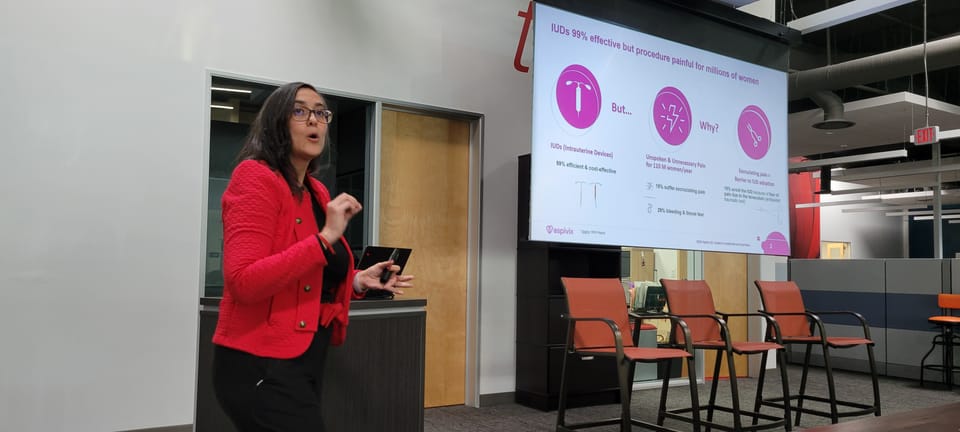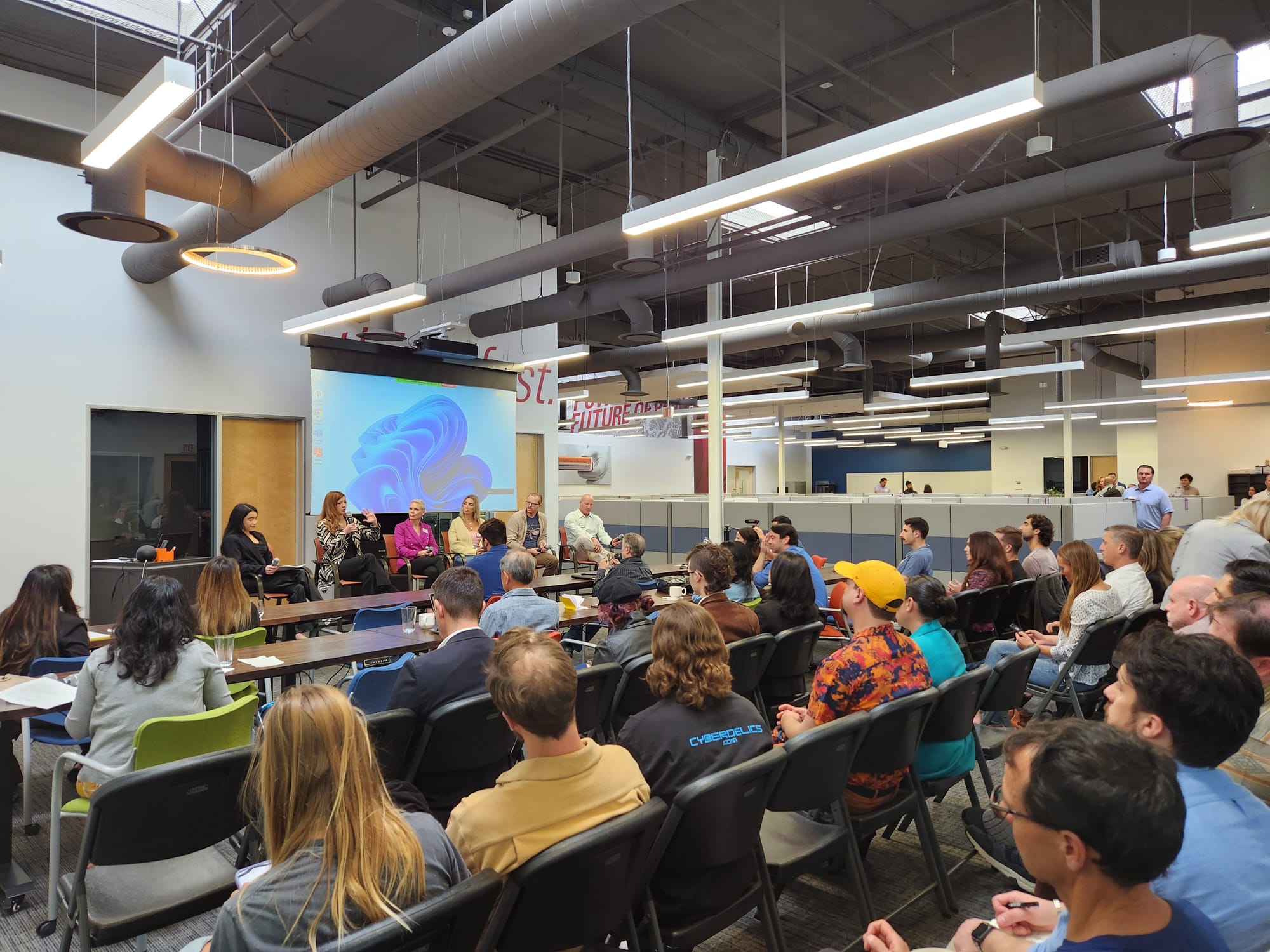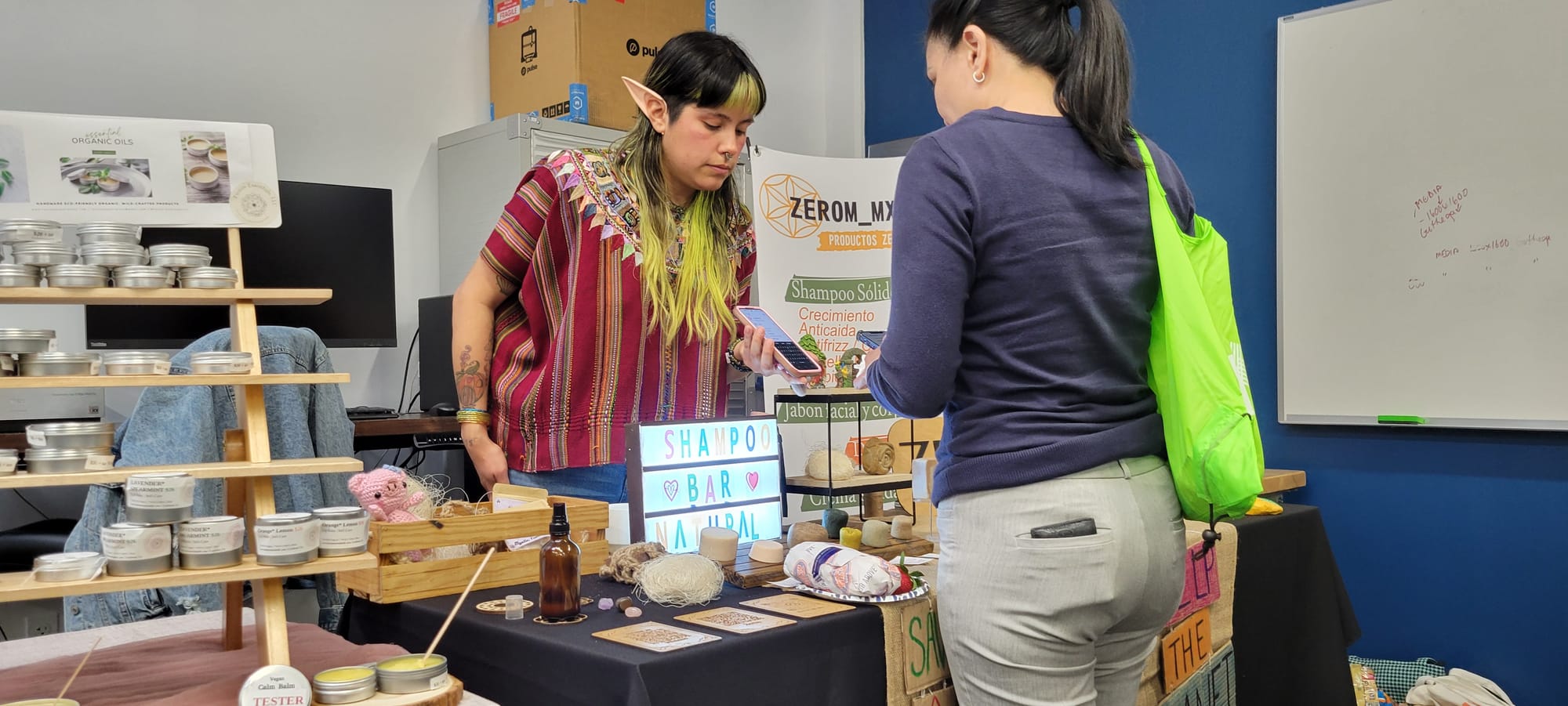Overcoming the Silo-Effect: Creating Alliances through Collaboration

By Rise Riyo, Community Outreach Mgr., ZeroIn
During the winter months I had the opportunity to attend two symposiums, one of which was the Sustainability Symposium at Aquillius. Hosted in March 2024 the symposium presented various topics ranging from possible solutions for the plastic waste crisis to social equity in the climate industry to fermentation for sustainable foods. While mingling between breaks, I found myself among like-minded people who were concerned about future generations and life on Earth. I was formally introduced to Aquillius founders, President MyPhuong Le, PhD and Vice President Leah Villegas, PhD. I was so excited to meet them. Being an older GenX Asian American woman, it’s not very often that I meet two young scientists who are founders of a company, Asian American, and female. So I made it a priority to interview one of them, if not both. A week later, I was able to sit down with Dr. Le to talk about Aquillius, her sustainability journey, and her concerns about the climate crisis.
I asked Dr. Le why she chose Aquillius as the company name. “What we had wanted to do was to create a facility that would support the startup community,” stated Le. The company's logo and its name symbolize a combination of two words, Aquarius and willow tree. “[O]ur belief is water is very essential to growth. And so it's feeding the growth of the seedling and forming the strong willow tree that has all these branches,” pointed out Le. Her words echo those of many leaders from indigenous tribes who speak of water as the lifeblood of their communities.
Aquillius became incorporated in 2021. The company moved into its current facility located off of the I-15 in San Diego and officially opened its doors in early 2022. As I was given a tour of the facility, my nerdy side was beginning to geek-out. The site is reminiscent of an open source makers lab that my family and I have often visited in Vista up in North County – but way more upscale. There were laptops on tables, large 3D printers stationed on counters, and other cool looking devices, set up and ready for a young company in the biotech or tech industry to dive into and use. An innovation hub and incubator, Aquillius also provides a space consisting of offices, a wet lab, and clean rooms to support medical devices, electronic assembly, and biomanufacturing. But the amount of resources doesn't stop there.
Aquillius’ website states that the “[b]iotech industry lacks diverse representation especially [at the] executive level where over 80% of CEOs in [the] biotech industry are white men.”[1] To address this issue, Aquillius is designing programs such as the Spark Apprenticeship, a one to two-year program for underserved students to receive hands-on training and experience that they’ll need in a competitive market before they graduate. Additionally, the company runs a 10-week accelerator called Catalyst Entrepreneurship Program that brings students and first-time entrepreneurs up to speed on the business aspects and the how-tos of developing their ideas and projects into marketable prototypes.
I asked Dr. Le about her concerns about the climate crisis. Beyond reusing and recycling grocery bags, her own journey in sustainability is fairly new and, at times, overwhelming with the amount of information given to the public that is often contradicting and confusing. “We want to create these workshops [that provide information to people].” But Le wants to go beyond just preaching to the same group of interested parties. Her goal for Aquillius is to become partners with other groups by creating alliances with them.

“[The word sustainability] really eliminates that sense of we’ve got to do more. …We can't wait 30 years later for something to come into play. …we actually need to fix the damage that we've done. And I think that's where that word, sustainability, is flawed because …it's not active to me.”
“[T]he difficulty of [the climate crisis] is not that there aren’t exciting ideas,” continued Le. “The difficulty is where’s the money that’s going to support [these ideas] so they can ramp [these ideas] up extremely quickly. ….Ten years later is ten years too late,” emphasized Le.
That said, another major project at Aquillius is to provide access to capital for early start-ups in the biotech and tech industries through their VC firm, Aquillius Ventures. However, MyPhuong again emphasized that Aquillius' doors are not only open to companies or groups within these industries. “...[I]t's a little bit more diverse, and that's why I think we're really interested in [seeing] founders and startups with different technologies coming together in one place, and really hoping that it encourages interaction,” explained Le. In fact, a portion of Aquillius Ventures is specifically aimed at the sustainability industry. Which is why at the end of the Sustainability Symposium, Aquillius included a small pop-up of various local vendors who provided information on sustainability and sold eco-friendly products to the crowd.

Le posed, “How can we connect each other to the resources that can actually move this [action] forward? We need those investors. They’re the ones with the money that can really drive [these technologies].” Le stated that on Aquillius’ website, they specifically use the term, activist investor, meant for those investors who want to fund with a purpose, in the context of the climate crisis. Her hope is that more concerned activist investors will provide the necessary funding needed now for innovative, early start-ups to bring their ideas into development and begin launching their solutions soon in order to create a huge impact on the global climate crisis.
”The Climate Policy Initiative estimates that annual global spending on climate solutions needs to range between 3 and 6 trillion USD in the next 20 years. Yet in 2021, global spending on climate mitigation was $632 billion.”[2] In the U.S. alone, the Biden administration had committed itself in 2021 to increase US international climate finance to over $11.5 billion by 2024.[3] However, presently, for the third year in a row, “Congress has failed to sufficiently deliver on U.S. international climate commitments. Just $1 billion in a spending package totaling $1.59 trillion sends a damaging message to the rest of the world.”[4] Furthermore, what U.S. funding is available for U.S. companies is mostly being allocated to the EV and solar industries.
Allocating funds to one industry to resolve the climate crisis is a mistake. This approach brings to light decades of division across and within industries and progressive socio-political movements. It creates, what Le pointed out, a silo-effect that separates us from one another such that each group merely understands its own ideas and issues. In doing so, we become myopic in our perspective and potentially in our approach to addressing the effects of climate change.
Indeed, viewing a global crisis from the inside of a silo will not resolve a crisis: plain and simple. Additionally, moving outside of a silo does not imply inventing another plan or reinventing the wheel. It simply means becoming more involved with and supportive of other companies, large and small, nonprofits, and groups across industries and communities.
I paused for a moment to slowly take in our conversation. I’m reminded by the news that the Earth’s temperature has already surpassed the lower limit threshold of 1.5 degrees Celsius (2.7 degrees Fahrenheit) that scientists have continuously warned us about.[5] Just this past winter, the U.S. West Coast had 51 atmospheric rivers slamming into 84 regions in the state of California.[6] And already it's June, and NOAA (National Oceanic and Atmospheric Association) has predicted much of the western and central regions of the U.S. will be warmer than average, and an 85% chance of an above-normal hurricane season for the Atlantic basin.[7]
Through collaboration and by building alliances we can share knowledge that will hopefully help each other’s concerns and issues by furthering each other’s ideas and projects. As Dr. Le stated earlier to me, Aquillius is open to hosting meetups and other local organizations and their events, not just the biotech and tech industries. Seen in this light, Aqullius is much more than an innovation hub for its in-house community. It stands as an innovation node open to building and connecting to a vast network of industries and communities that together addresses the climate crisis. At least, that’s the goal, and a good one at that.
“For [Aquillius], this is kind of the beginning of our journey, right? In the sense of, this is what we're interested in, [and] we know we can't do it alone,” noted Dr. Le.
Aquillius. https://www.aquillius.com/seed/seed, par. 3. Date accessed June 5, 2024. ↩︎
Hale, Galina. “The Need for Increasing Private Sector Funding of Climate Solutions.” Econofact, par. 2. November 30, 2023. Date accessed June 5, 2024. ↩︎
Thwaites, Joe. “How the U.S. Can Still Meet its Global Climate Finance Pledges.” NRDC, par. 1. April 15, 2024. Date Accessed June 5, 2024. ↩︎
Ibid. par. 3. ↩︎
Smith, Hayley. “Earth surpasses critical 2-degree warming threshold, European climate official say”. L.A. Times. November 20, 2023. Date accessed June 5, 2024. ↩︎
Center for Western Weather and Water Extremes (CW3E) at Scripps Institution of Oceanography, UC, San Diego. “The Atmospheric Rivers of Water Year 2024: April Summary”. Date accessed June 5, 2024. ↩︎
National Oceanic and Atmospheric Association. "NOAA predicts above-normal 2024 Atlantic hurricane season". May 23, 2024. Date accessed June 5, 2024. ↩︎
